Adding microgreens to your daily meals adds flavor and texture, making eating healthy fun!
Microgreens are convenient, with little to no prep necessary. This makes it easy to create beautiful dishes that everyone will enjoy.
Many varieties can be purchased at local stores, see home page for a list.
Pricing for chefs and produce managers can be requested through the Contact Page.
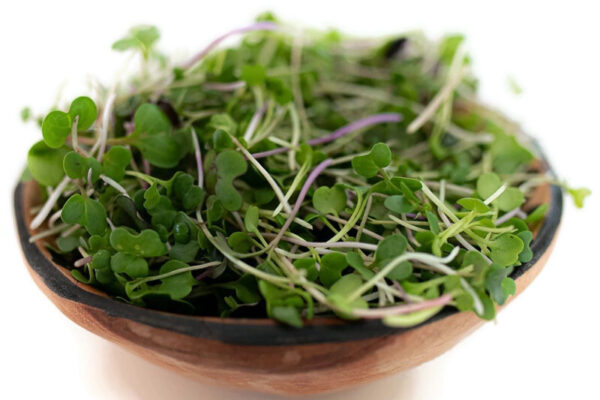
Spicy
Mix
Smaller leaves and less spicy than straight radish, a nice mix consisting of Broccoli, Kale, Radish, Purple Kohlrabi, Arugula, Red Cabbage & Mustard. This has a great flavor and makes a delightful salad in and of itself.
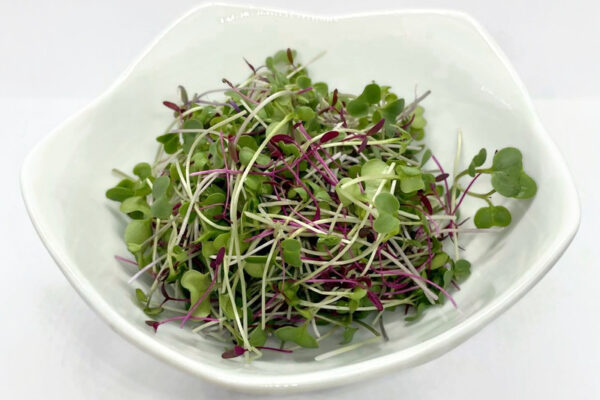
Rainbow
Mix
A delicate, non-spicy mix that brightens any meal.
Bright-red Amaranth really stands out among the Kale, Purple Kohlrabi, Arugula, Red Cabbage, Mustard, and Broccoli.
Another mix that can really elevate your salad, or be a tasty side all by itself.
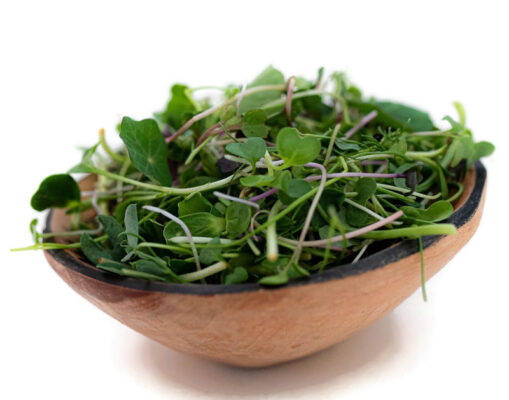
Big
Mix
This mix is BIG!
Contains Sunflower and Pea shoots, Radish, Arugula, Broccoli, Leeks, Kale, Kohlrabi, Red Cabbage, Giant Mustard, and Nasturtium… all the heavy hitters come out to play with this salad mix that’s packed with flavor and texture!
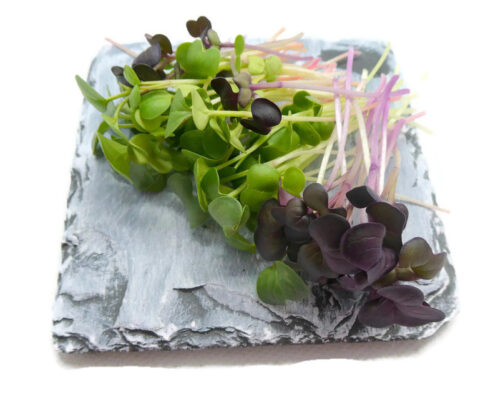
Radish Blend
A mix of 3 varieties to add color and interest. Red Rambo: beautiful purple leaves… Daikon: green leaves with bright white stems… China Rose: rosy stems… Fresh and spicy, a great addition to any salad or sandwich.
These 3 varieties can be ordered individually if desired.
- Highest in vitamin E compared to other microgreens as well as its matured counterpart
- 2 week cultivation time.
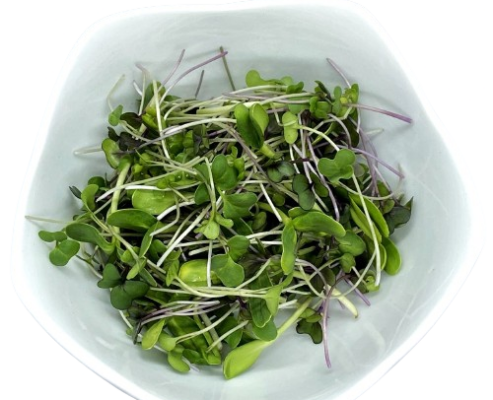
Smoothie
Booster
A mix especially for those who love adding microgreens to smoothies and juicing recipes!
‘Smoothie Booster‘ contains a mix of Broccoli, Sunflower, and Red Cabbage.
Broccoli is a nutritional powerhouse, well known for it’s health-promoting properties.
Sunflower offers a nutty crunch and slight sweetness.
Red Cabbage has a beautiful color and increases the sulforaphane content.
2 weeks cultivation time
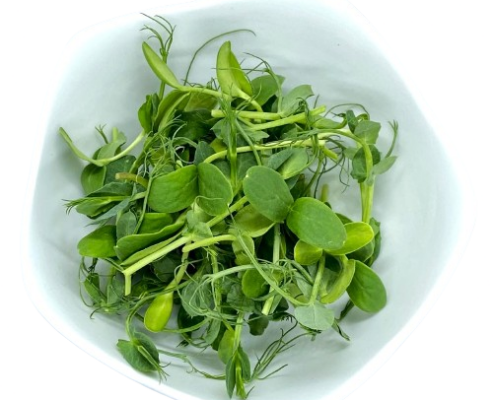
Melon
Medley
A sweet and crunchy mix!
Cantaloupe melon shoots along with sunflower and tendril peas.
Great texture and delicious!
2 weeks cultivation time
HIGH IN NUTRIENTS
Contain 4-40 times more nutrient density by weight than their fully-grown counterpart.
IMPROVE HEART HEALTH
Studies have shown microgreens may help reduce heart disease risk factors, such as weight, bad LDI, cholesterol & triglycerides.
CONTAIN POLYPHENOLS
Prevent the buildup of harmful free radicals associated with a reduced risk of heart disease, cancer and Alzheimer’s disease. Contain wider variety of polyphenols than their mature vegetable counterparts.
REDUCE CHRONIC DISEASE RISK
Veggie consumption is associated with the lower risk of certain cancers, inflammation, heart disease, diabetes & obesity. (Sources: NCBI, FASEB)
